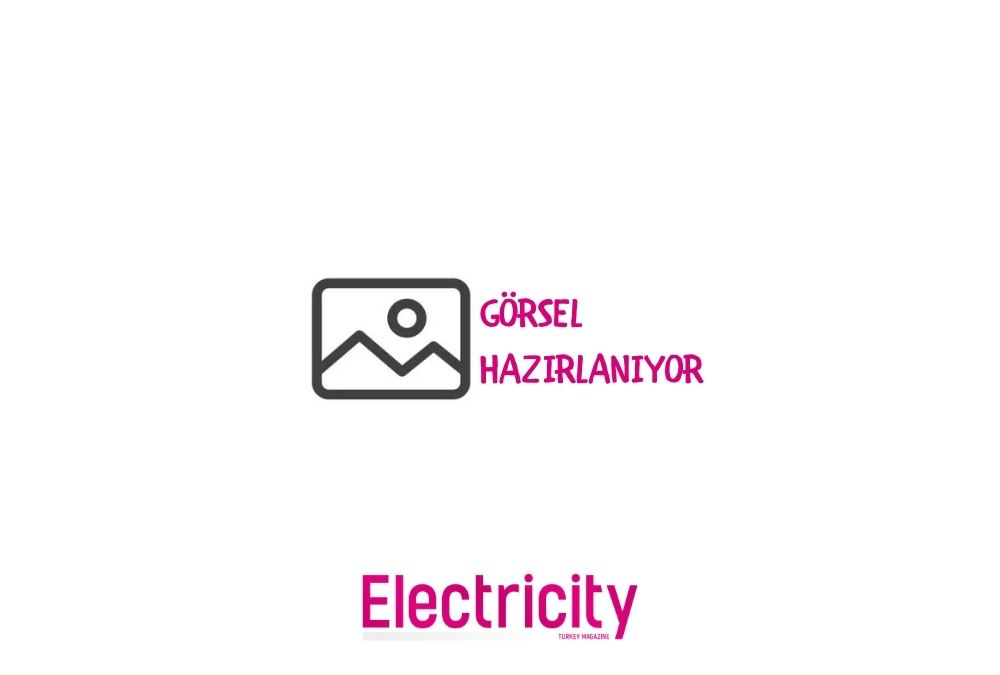
A 50 percent tax exemption was introduced for micro exporters selling abroad over the Internet. Cenk Çiğdemli, Founder of Ticimax E-commerce Systems, stated that this tax advantage will be a lifeline for those who want to sell individually abroad, "It is a very important incentive especially for SMEs, those who want to sell their own products abroad at home and those who want to open local products to the world."
 Macro tax advantage to micro exporter. A 50 percent earnings exemption was introduced for the sales realized by sole proprietorships abroad with the Electronic Trade Customs Declaration. Those who make micro-exports via mail and fast shipping will be exempted from income tax on 50 percent of their earnings. The law adopted in the Turkish Grand National Assembly offers tax exemption for micro exporters. Accordingly, with the Electronic Commerce Customs Declaration (ETGB) issued by fast cargo transportation companies, 50 percent of the earnings from the export of goods realized in micro export transactions will be exempted from income tax. Stating that the application will start on January 1, 2021, Ticimax E-commerce Systems Founder Cenk Çiğdemli said, "We are going through a period of uncertainty in which the economies of countries are shrinking all over the world due to the pandemic. In order to be strong on the online front of global trade wars and to benefit from the war, especially SMEs must definitely turn to micro exports."
Macro tax advantage to micro exporter. A 50 percent earnings exemption was introduced for the sales realized by sole proprietorships abroad with the Electronic Trade Customs Declaration. Those who make micro-exports via mail and fast shipping will be exempted from income tax on 50 percent of their earnings. The law adopted in the Turkish Grand National Assembly offers tax exemption for micro exporters. Accordingly, with the Electronic Commerce Customs Declaration (ETGB) issued by fast cargo transportation companies, 50 percent of the earnings from the export of goods realized in micro export transactions will be exempted from income tax. Stating that the application will start on January 1, 2021, Ticimax E-commerce Systems Founder Cenk Çiğdemli said, "We are going through a period of uncertainty in which the economies of countries are shrinking all over the world due to the pandemic. In order to be strong on the online front of global trade wars and to benefit from the war, especially SMEs must definitely turn to micro exports."
WHO IS ELIGIBLE?
According to the Official Gazette published on November 17, 2020, 50 percent of the earnings of fully taxpayer real persons within the scope of the export of goods realized by the Postal Administration authorized as indirect representatives or by the companies engaged in fast cargo transportation within the scope of Article 225 of the Customs Law No. 4458 can be deducted from the earnings reported in the declaration.
 In order to benefit from this discount;
In order to benefit from this discount;
-Those whose revenues arising from exports are up to 400,000 Turkish Liras per year must be insured themselves in the relevant year,
- Those whose revenues arising from exports are up to 800,000 Turkish Liras per year must be self-insured in the relevant year and employ at least one full-time or equivalent part-time worker on average,
- Those whose revenues arising from exports are up to 1,600,000 Turkish Liras per year must be self-insured in the relevant year and employ at least two full-time or equivalent part-time workers on average,
-Those whose total income from exports is up to 2.400.000 Turkish Liras per year must be self-insured in the relevant year and employ at least three full-time or equivalent part-time workers on average.
-Within the scope of exports, goods exports realized with the electronic trade customs declaration issued by the Postal Administration or companies engaged in fast cargo transportation in terms of weight and amount are included.
WHAT ARE THE ADVANTAGES OF ETGB SYSTEM?
Giving information about the advantages of micro exports and the ETGB system, Çiğdemli said:
"There is a system that is free of procedures for cross-border e-commerce. If the invoice amount excluding VAT in a sale from Turkey to abroad is less than 15 thousand Euros and the weight of the goods subject to sale is lighter than 300 kilograms, this export can be made as micro export. All procedures on the ETGB system are carried out through authorized cargo companies. Moreover, the membership fees of those who want to sell in global marketplaces such as Alibaba, Amazon, Etsy and Rakuten are also covered by the state. The fact that there is no customs declaration issued in micro exports is another advantage. Instead of customs declarations, Electronic Trade Customs Declaration (ETGB) is issued online and there is no need for a customs broker as in classical exports. Considering the customs clearance costs and customs clearance speed, the advantage offered by this system for SMEs is very important. Since you sell directly to your individual customer, you can also benefit from B2C (from company to direct consumer) customs clearance tax exemptions in your customer's country. There is no need for bank guarantees as in classic exports. It is enough to agree with the payment institutions that will be directed by your e-commerce infrastructure company to receive payment. Since a large number of high-volume products are not sent, the risk ratio is almost non-existent."
CROSS-BORDER E-COMMERCE IN 8 ARTICLES
There are 196 countries and billions of people in the world. There are great opportunities especially for our SMEs that make domestic production. Online trading for both B2B (from company to company) and B2C (from company to end consumer) sales is the fastest way to turn exchange rate differences into opportunities. So how is cross-border e-commerce done? What to look out for? Ticimax E-commerce Systems Founder Cenk Çiğdemli conveyed the following information:
First of all, you should have a professional website. Your commercial website should include detailed promotion, visual and contact information about your company and products. Your website must be mobile-friendly. Because more than half of Google searches are now done through smartphones. Your website should be created with an infrastructure that can load quickly. The photos you upload should be small in size so that they can be opened immediately.
-Your website should be in the first place in search engines when the name of your company is searched. For this, the necessary SEO studies must be done. No matter how good a site you are, it's hard to be visible in a country outside of the country you're in. Because Google doesn't rank you high in searches outside of your home country. We overcome this problem by using different servers. With our collaborations, we have pop points in 100 different countries. In this way, the site can easily rise to the top of Google searches in all countries. Giving country-based small ads to advertising channels such as Google and Facebook will also accelerate your sales. English may be an international language, but it's not the right approach to assume that all of your potential customers speak English. In Russia, the Balkans, the Middle East and the Turkic geography, you should prepare advertising content suitable for local languages. You should opt-in for the user to change the language options on the website.
-Your site should have multiple language and location options, and an infrastructure that will allow each country to purchase goods with its own currency.If there is a country you are specifically targeting, it is also important to design a website that complies with the cultural codes of that country. For this, an infrastructure is required whose site interface can be adjusted according to countries. You may also need to develop a sales and marketing strategy for each country. Selling the right goods to the right country with the right price options is one of the priority issues for cross-border e-commerce. With our cross-border e-commerce modules, the company can sell the same product to 100 different countries at different prices through the same site. We can adjust this according to the economic levels of the countries, as well as by examining the market value of the product in that country.
You can also put your products in B2C (targeted to the end consumer) global marketplaces such as Alibaba.com, Amazon, E-bay. Or you can place Google, Facebook, Instagram ads targeting the relevant country to attract customers directly to your site. For those who want to export B2B (from company to company), there are cross-border e-commerce platforms such as Tradekey, Indiamart, ecplaza, thomasnet, kompass, ec21, diytrade, europages, made-in-china, ecvv, globalsources, busytrade, tradeindia. By putting company information and samples here, advertising can be made for importing companies.
-In order to start exporting online, you need to learn the Gtip (Customs Tariff Statistical Position) number of the product you will export. This is a number given to products in foreign trade transactions. You can find out by asking your customs broker, as well as from the tuik.gov.tr site.
-After learning the Gtip number, it was time to determine the target markets. You should give priority to the countries that import the product you have the most. While doing this, you should also pay attention to the fact that it is a close country. Thus, you can offer more competitive prices to the customer by reducing your logistics costs. The most important site you can use in determining the export target market is the trademap.org site under the roof of the United Nations. Here you can find detailed statistics about the market of the product in question by country.
-If you want to contact importer companies, you can easily access the list of companies in the target market you have selected through the Musaviredanisin.ekonomi.gov.tr site. What you need to do for this is to select which country you want to get information about on the site and write a short description that introduces the product group you want to export. Writing the Gtip number in the description section will make your job easier. You can also find up-to-date importer companies from the trademap.org site you use for target market research.
-Some countries share bill of lading information, especially for imports made by sea. There are also sites that receive and process this information and then offer it to the benefit of exporting companies. By becoming a member of such sites, you can see which companies sell goods to which companies. To give an example of such sites, we can mention Tradeinfo365.com at the beginning. It allows you to search for importers and exporters of products on the basis of countries such as USA, Canada, UK, South Korea, Colombia, Argentina, Chile, Russia, Ukraine, Peru and Pakistan. You can also take advantage of sites like Piers.com and importgenius.com.
 SİZİN DÜŞÜNCELERİNİZ?
SİZİN DÜŞÜNCELERİNİZ?